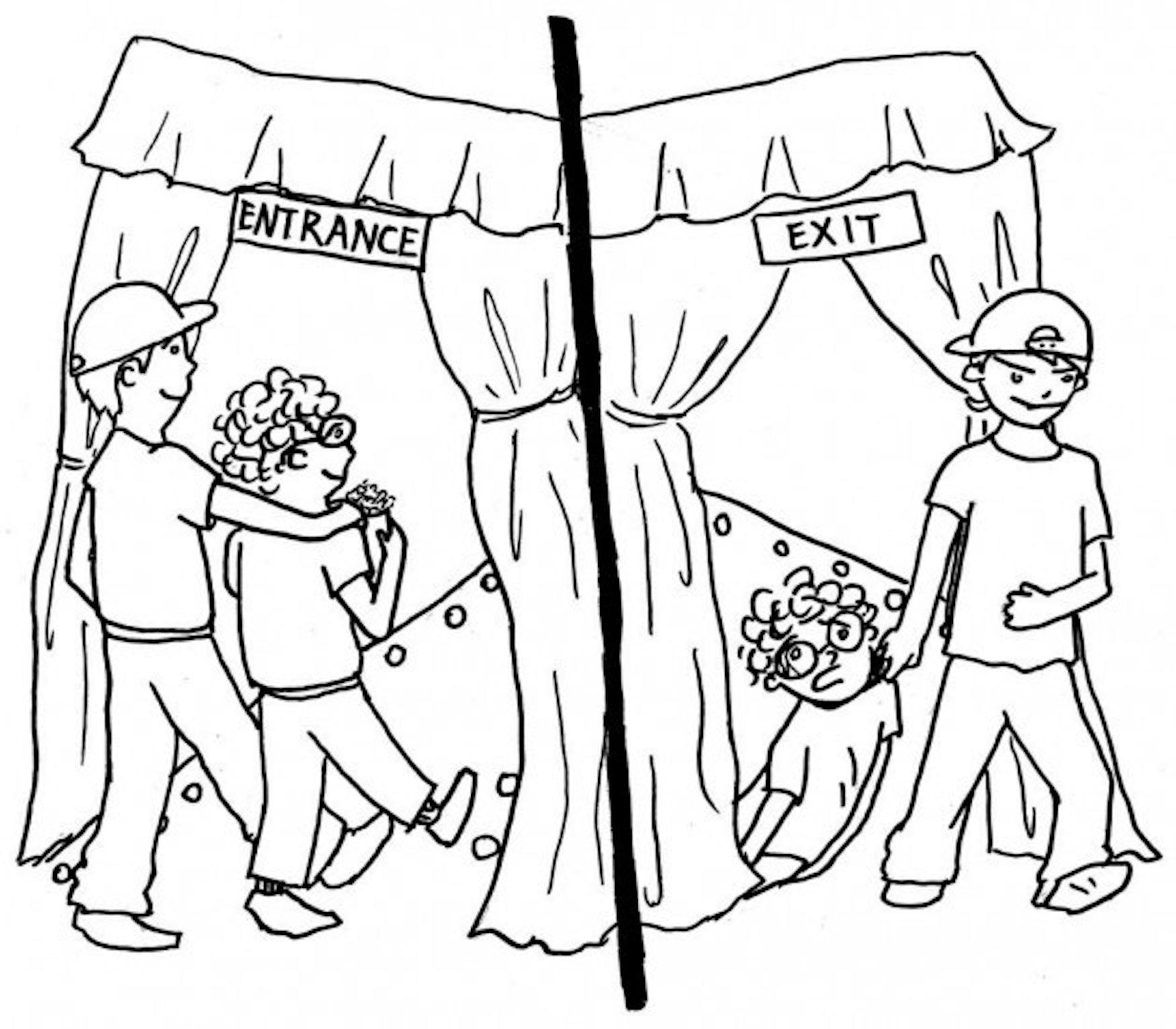Bully' undermines power of language
When I think about my elementary and high school experiences, a host of memories come to mind ranging from the first day of class to the last.
The memories of good grades, recess and certain clubs or extracurricular activities all bring a smile to our faces.
Yet some memories bring out a very different reaction. Bad grades and break-ups, among others, are part of the experience we would like to forget.
One such memory that almost every student likely remembers is bullying.
Cynthia Lowen, an award-winning writer, author and producer, has joined the fight against bullying.
Lowen started "The Bully Project," a fund that helped pay for her documentary Bully. According to Lowen, the movie is about "the violence, intimidation, threats, derogation and abuse 13 million American kids will experience this year."
The movie, however, was given an R rating rating by the Motion Picture Association of America due to excessive inappropriate and profane language, prohibiting most kids from seeing it.
As a result, a 17-year-old girl from Michigan, Katy Butler, delivered a petition with over 225,000 signatures to the MPAA urging them to change the rating to PG-13, thus allowing students to see it. Butler has taken a stand in the fight against bullying; beside meeting with the MPAA and Lowen, she has met with policymakers and news agencies in Washington, D.C. including the Washington Post. Despite Butler's best efforts, the MPAA has not changed the rating.
Lowen fully endorsed the petition in an article published in The Huffington Post on March 13 titled, "Give Kids the Respect They Deserve."
Lowen argues that we must depict bullying as realistically as possible: "If we expect middle and high school students to have the courage, integrity and strength to take on bullying, we must empower them with the respect to handle the language that honestly depicts their world."
However, Lowen underestimates the power of language.
A curse word can be extremely hurtful to a child, and allowing this movie to nonchalantly throw these words around will cause the words to lose their power.
The intent of the movie is to show how a bully can wound another child; the swear words are a means to show exactly how malicious bullies can be.
However, by allowing children to hear these words become more ubiquitous and as part of the diction of the film, they will lose that value. No longer are they viewed as the extreme and hurtful words that they are.
Rather, they will be integrated into the mainstream vocabulary of the children to which the movie hopes to connect. Profane language is profane for a reason. Children must be taught that curse words have a certain connotation and meaning.
They should not be thrown around lightly in a movie, no matter what the cause.
The film obviously still has merit and the message is valid. We should do whatever we can to create a proper and nurturing environment in our schools, and the removal of bullying is a just cause.
For example, in-school speakers, educational programs and support from parents are some of the many ways to combat bullying that do not require explicit use of profanity. The efforts can be just as powerful and get the message of the movie across but do not require the use of such harsh language.
Perhaps a better solution to allow students to see the movie would be to release a censored version.
No major censoring would be required, so the overall point of the movie would still come across.
Rather, removing the explicit words the MPAA has issue with will allow children to see the movie while not diminishing the power and strength a curse word can have.
So often we have conversations with our friends, peers, professors and parents in which we curse in order to portray a point. Curse words are losing the intensity that should be associated with them.
They are not meant for casual conversation; they are meant to be aggressive and harsh and can be incredibly damaging to children with developing minds.
The message behind the movie is clear: Stop the bullying that is going on in schools across the country. Lowen feels that profanity is one of the main tools used by bullies and its effects on hundreds of thousands of students must be brought out into the open.
However, profanity is not appropriate for our everyday conversation, and it is certainly not appropriate for a movie geared toward children, no matter what the cause.




Please note All comments are eligible for publication in The Justice.